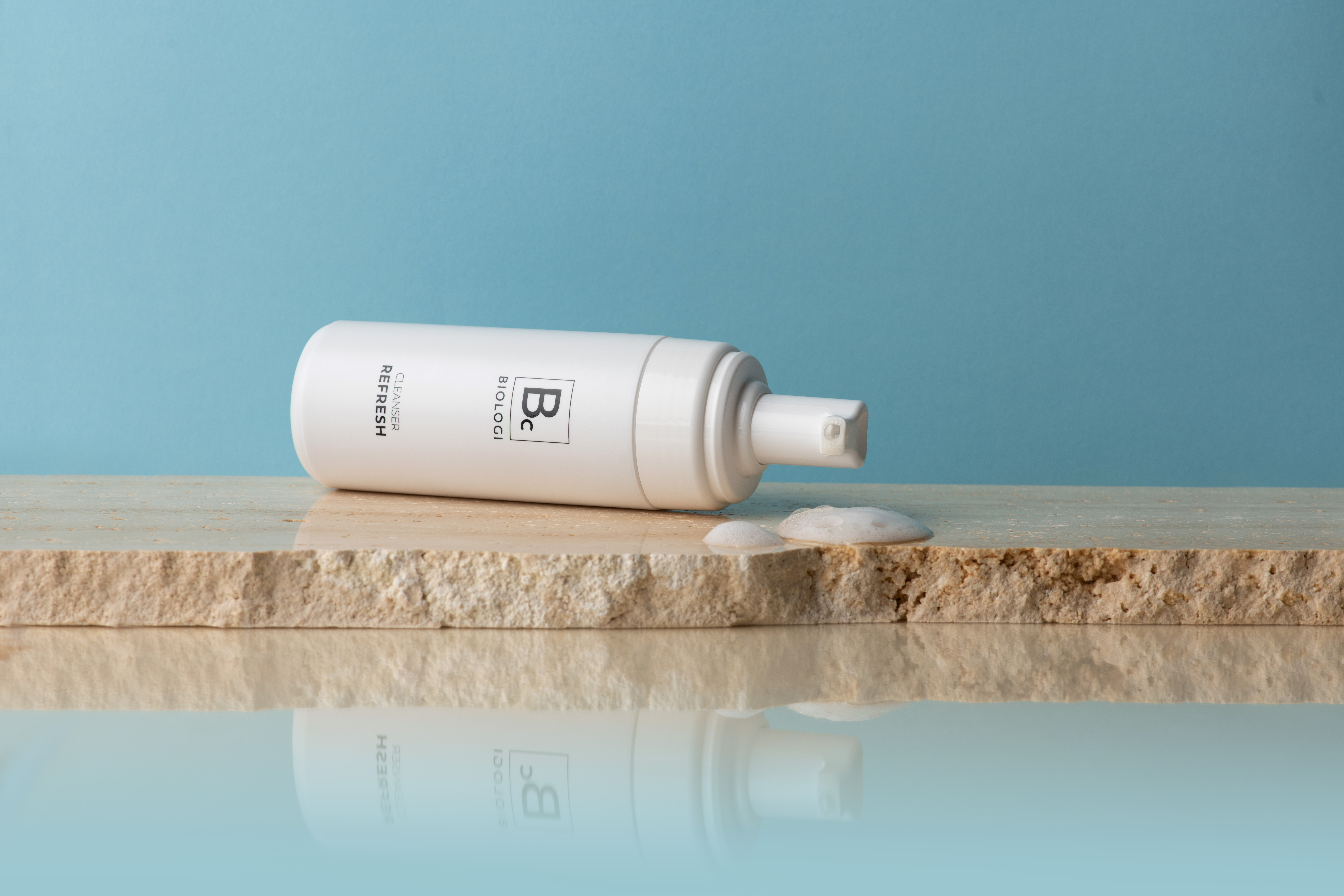People with sensitive skin are often looking for ingredients that can calm and soothe their skin (whilst also trying to avoid any ingredients that might irritate it) However, did you know there’s a difference between sensitised skin and sensitive skin?
Depending on what you’re suffering from, this can have an effect on how you treat it. Put simply, sensitive skin is a genetic trait, and sensitised skin, which is fast becoming a growing phenomenon worldwide, is caused by exposure to toxins, pollution, stress and chemicals. So, to break it down further, one you’re normally born with (sensitive) and the other is normally developed over time (sensitised).
Sensitive skin refers to an underlying skin condition that is usually caused by a genetic predisposition (usually inherited). It is often the result of a defect in the skin’s epidermal lipid barrier layer (the protective layer) which then causes irritants, and allergens to penetrate the skin and cause various reactions. A disturbed epidermal lipid barrier is an important component in several inflammatory skin diseases such as rosacea, atopic dermatitis, psoriasis and eczema.
Sensitive skin is not something that can ever truly be fixed as it is genetic, however, there are treatment options that can relieve the symptoms of skin conditions. Whilst these skin conditions may be genetic, they can also be a response to food intolerances, or an autoimmune condition. You may be born with a skin condition, or it may develop over time. A skin condition will possibly respond to medication.
Sensitised and sensitive skin can be both painful and uncomfortable, however, there are ways to manage and treat the symptoms:
Don’t touch your face
Regardless of your level of cleanliness, your hands still contain millions of bacteria that can clog pores and irritate already sensitised skin. Always wash your hands and make sure they’re thoroughly dry before applying products and get out of the habit of touching your face unless you absolutely need to.

Drink lots of water
Lack of hydration can irritate damaged skin cells further. Drinking water promotes the skin’s natural hydration processes to strengthen cells and improve function. Drink a minimum of two to three litres of water a day to give your skin cells a natural helping hand.
Learn about the ingredients used to formulate your skincare products
It’s no secret that many moisturisers and products aimed at curing sensitive or sensitised skin are ironically part of the problem. Emulsifiers used to create the thick consistency of moisturisers and lotions can block pores and cause irritation which makes sensitivity worse.
Sensitised skin will almost certainly react to harsh ingredients such as synthetic acids, fillers and many preservatives by inflaming already delicate skin cells. Prolonged use of such products can even directly cause sensitivity in healthy skin cells.
Avoid products that contain fragrance
The only benefit of using a product that contains fragrance is that it will smell nice. Many fragrances – even the natural ones – are known skin irritants that can cause and worsen sensitivity.
If you’re not sure how you’ll manage without a perfumey-smelling product, just remember that not using fragrance won’t cause damage to cells leading to sensitivity and sensitised skin, using fragrance will.
Avoid essential oils
Essential oils should be on the top of your list of ingredients to avoid if you have sensitive skin. For anyone with skin issues, particularly with sensitive skin, it is best to avoid essential oils completely. Most essential oils contain known sensitisers that over time when applied to the skin either directly or formulated in a product will cause sensitisation and skin dermal problems, such as reddening, itchiness and pigmentation (to name a few).
Peppermint and lavender oils are two essential oils that are used widely in skincare products claiming to be for sensitive skins. These oils contain linalool, limonene & geraniol at over 50 per cent of the oil and should be never used in any skincare product. There are many other essential oils that contain over 90 per cent of sensitisers. In this case, natural is not always better and can be worse or far more toxic than other ingredients.
Avoid occlusive products
If a product tells you that it will lock in hydration, it will also lock in bacteria and foreign objects that increase pain and discomfort. Use natural serums and never apply petroleum or thickening products directly to your face.

Choose the right cleanser
If you suffer from sensitive skin, it’s likely you approach cleansing with a bit of trepidation. Some cleansers can be harsh or strip the skin, causing further pain and discomfort. Any cleanser that makes your skin feel tight and shiny is not a good option because it is likely stripping your skin of its natural oils that it needs to repair. Instead, choose a cleanser that is gentle and works to repair the skin barrier function like Biologi’s Bc Refresh Cleanser.
Harnessing the untouched power of soapberry extract, Bc Refresh Cleanser is packed with nourishing actives that will gently wash away impurities to leave skin fresh, clean and clear. It will also help to build antioxidant protection, strengthen barrier function and promote a healthy skin microbiome.
Exfoliate
We know it feels like there’s nothing worse than using a harsh scrub on an already painful face but don’t give in to the temptation to skip exfoliation. Exfoliation keeps pores free from bacteria and dead skin cells that can further damage the delicate dermal layer leading to dry, sore patches.
Always exfoliate but be mindful of which products you use and always opt for a gentle enzyme exfoliator rather than an abrasive scrub to avoid further irritation.
Look for natural plant extracts
When you start to treat sensitised or sensitive skin, we recommend applying Biologi’s Bf Restore Face and Body Serum daily. Bf Serum is made from pure extract of finger lime and is a natural source of tryptophan – a powerful nutrient that will reverse the damage and repair the barrier function of the skin. Bf serum is also a natural source of vitamin C which is an ingredient known to reduce inflammation to ease pain and discomfort.
Lucy Macdougald is Biologi’s Dermal Specialist. Biologi are an Australian skincare brand that is the innovator of the only 100 per cent active organic plant serums in the world.





